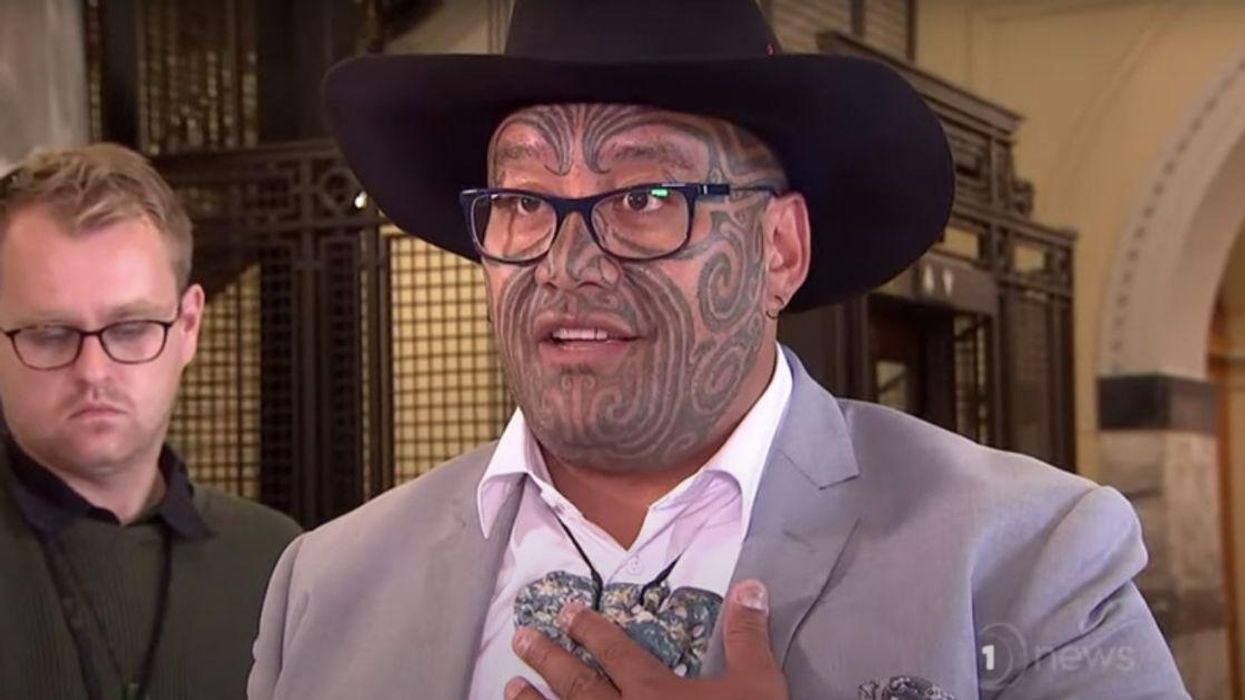
People love to point to “identity politics” as if it’s a new, progressive phenomenon, but there is no shortage of examples of how racial and cultural identity has always played a role in politics. It’s just that up until recently, the identity in identity politics was white.
This has not only been the case in the U.S., where white, male identity politics kept women and racial minorities out of power for most of our history, but in other Western nations as well. Case in point: A story from New Zealand of a Maori lawmaker who was ejected from parliament proceedings because he was not wearing a necktie—or at least not a necktie that fit Western standards of “business attire.”
The Maori are the indigenous people of New Zealand, and Maori representatives make up nearly a quarter of the country’s parliament. Rawiri Waititi, a Maori MP, was kicked off the parliament floor after the Speaker Trevor Mallard twice refused to recognize him due to his attire. Instead of a necktie, which male parliament members are required to wear, Waititi wore a hei tiki—a traditional Māori greenstone pendant—tied around his neck.
“It’s not about ties, it’s about cultural identity, mate,” Waititi said as he was leaving.
Watch the parliament exchanges here:
Māori MP ejected from New Zealand parliament in necktie row
www.youtube.com
Waititi had argued in the parliament’s recent “business attire” debates that the Western necktie was like a “colonial noose.” Mallard pointed out that he himself wished to eliminate the tie requirement, but that the consensus had disagreed.
In an interview following his ejection from parliament, he said, “As you can clearly see, this is a tie, as far as I’m concerned…this is a tie to my people.”
Speaking to Reuters, Waititi said, “Māori have not been treated equal in its own country and indigenous people all over the world have been subjected to discrimination due to racist systems that keep our peoples in second place. For us to stand up against subjugation, to stand up again assimilation, to stand up against those who try and make us look, feel, make us think like they want us to think … this was standing up against that.”
Māori Party co-leader kicked out of Parliament for not wearing a tie
www.youtube.com
Waititi showed up to parliament with the same attire the next day, but this time he was allowed to remain. According to Radio New Zealand, the male necktie rule has now been dropped after the Standing Orders committee met and decided it should be optional.
“The noose has been taken off our necks, and we are now able to sing our songs,” Waititi told Reuters.
If kicking a lawmaker out because their cultural dress attire doesn’t line up with an arbitrary perception of what makes up business attire seems silly to you, you’re not alone. Dress codes are meant to keep a sense of professionalism in a proceeding, to say, “This is serious work we are doing, so showing up in your workout gear or loungewear isn’t appropriate.” They should not be used as an excuse for upholding white Western standards of dress and keep people from diverse cultures from wearing something appropriately formal.
Not to mention, how much of a waste of time and energy is this when there are important issues to discuss and problems to solve? Maybe this is what happens when your country manages to control a pandemic and isn’t dealing with an insurrection and impeachment trial. You find ridiculous things to argue about.
In all seriousness, though, good for Waititi for illustrating how racism and white supremacy can be reinforced through something as simple as a dress code. And good for the members of parliament who stood up for his right to wear traditional attire from his culture.
